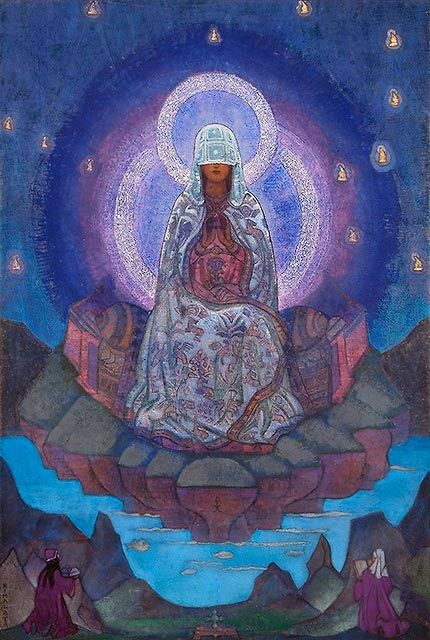Thought prisons
The one God (monotheism) is one of the paths to a thought prison.
This creates a prison based on religion (faith).
The alternative is the reality that the Logos of planet Earth is part of a group of Logoi in the solar system, which in turn is represented by the Logos of the Sun.
The group of Logoi of systems analogous to the Sun is represented by a Logos which, in theosophy, is called the ‘Cosmic Logos’.
The chain of entities described in this way is unlimited and continues into infinity. However, the thought model or idea that they become ever higher and more powerful does not apply to every aspect.
The chain of entities described in this way is unlimited and continues into infinity. However, the thought model or idea that they become ever higher and more powerful does not apply to every aspect.
Just as there is extrasensory perception, there is also a sub-sensory realm. Striving towards this should be avoided at all costs.
Monotheism and, in addition, the mental prison of the ‘one-life theory’ (denying reincarnation) create a permanent restriction of the human soul.
The East of the planet has an advantage for more comprehensive insights and developments with the principle of reincarnation, which is deeply rooted in the souls of the majority of the people there.
However, over the past 2000 years, a restrictive ‘shortening’ has crept into Eastern religion, philosophy and culture, which also leads to a prison of thought.
Salvation from the wheel of earthly incarnations is to be achieved through a single incarnation of special effort. Variations of Buddhism and Hinduism promise to make this goal of rapid ‘exit’ achievable through the use of certain mantras, meditative practices or extreme forms of asceticism.
Obviously, the need for an accelerated, permanent exit towards the subtle world within a single lifetime is very widespread. There seem to be a number of special forms in Buddhism and Hinduism whose creators hoped that the promises of quick salvation would increase their popularity.
Obviously, the need for an accelerated, permanent exit towards the subtle world within a single lifetime is very widespread. There seem to be a number of special forms in Buddhism and Hinduism whose creators hoped that the promises of quick salvation would increase their popularity.
However, if the goal of immediate salvation, an imaginary heaven or paradise, once firmly anchored in feeling and thinking, does not correspond to the reality of the long path of many successive incarnations, this leaves a great disappointment in the soul of the seduced. This disappointment will make the following incarnation significantly more difficult and harm the community. One consequence of this is atheism, the other is radicalised religious sectarianism.





